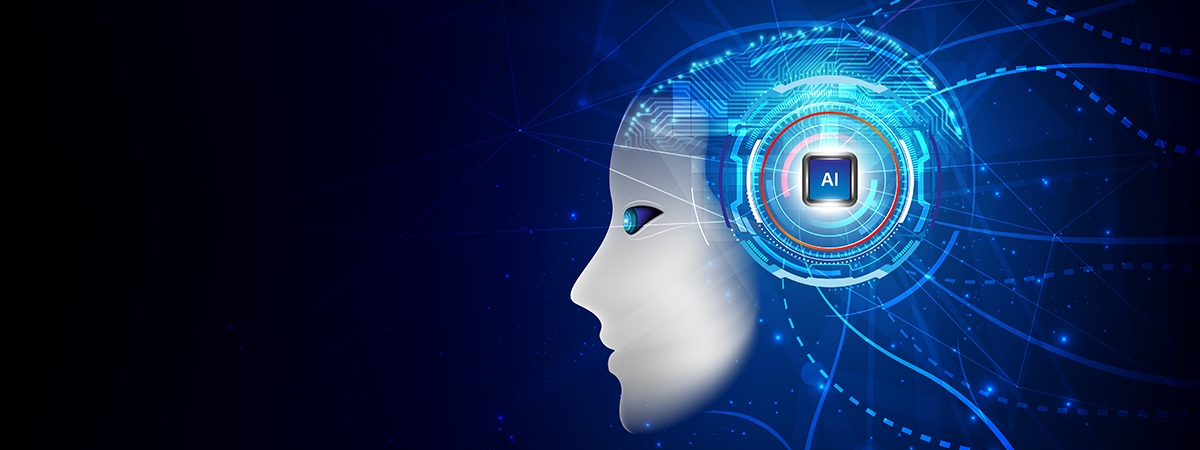Publish Date: November 14, 2022
The School of Artificial Intelligence (ScAI)

The School of Artificial Intelligence (ScAI) set up in IIT Delhi has started broad based activities to bolster the AI related research in the country. Established in September last year, the School is aimed at meeting the strong global demand for skilled AI manpower and spruce the AI ecosystem of the country.
Prof Mausam, Head School of Artificial Intelligence(ScAI) talks to Vanita Srivastava on the thrust areas, the future plans and more.
Edited Excerpts:
It has been just six months since the formal launch of the School. What have you able to attain so far? What have you planned for the future?
We have made substantial progress in setting up the school. We have already launched the PhD programme in AI. We have submitted a proposal to the Board of Academic Programmes for starting an MTech programme in Machine
Intelligence and Data Science. If this gets a nod, we can start it from July this year. Our advertisement for faculty recruiting is released, and applications have started coming in. We will initiate recruitment of core
faculty soon. Around 15 faculty from several departments have already expressed their interest in becoming a joint faculty with the school, many more have joined us as associated faculty members. As part of the institution building process, I plan to start regular focused brainstorming sessions of all faculty members to develop research agendas in the various emerging themes and applications of AI. Our website http://scai.iitd.ac.in is also ready where all the updates will be posted
What are the major thrust areas that you would be focussing on?
On the basis of initial meetings of our current faculty members, five major applied research areas naturally emerged as our strength. These are: AI for health care, AI for Industry 4.0, Multilingual AI, Physically-grounded AI and AI for materials. The AI in health care group focuses on prediction of diseases from symptoms, automated radiology, personalized medicine and wearable robotics. Our research group in AI for materials targets the use of machine learning and natural language processing to predict the glass
composition with a desired property. The traditional manufacturing processes are not always optimized; Industry 4.0 can help by detecting anomalies, and use optimization to increase efficiency in manufacturing processes. Multilingual AI area will help in translation of texts written in different languages, and will build multilingual dialogue systems and chatbots. Lastly, the physical AI group will develop methods to make robots more successful in their tasks, and also communicate effectively with humans.
How do you plan to collaborate with the industry partners and spruce the funding?
We are looking for funding at three different levels- government, private donors and industry partners. A seed funding of 2 crore from one of our alumni, Mr Arun Duggal, got us started. We are aggressively connecting with
more alumni and looking for a named sponsor to support the cause of developing AI at IIT Delhi. Donors can also join our league of founding donors -- they will be donors forever for the school. We have also started a preliminary round of talks with several industry partners. Our goal is to partner with companies who would be willing to have ties with us for atleast 4-5 years, possibly through their CSR funding.
Is it necessary to have a background in computer or electrical engineering for a PhD or MTech in AI?
AI is emerging as a multidisciplinary field, with its roots in computer science, mathematics, cognitive science and electrical engineering, and its applications in almost every area. Thus, we invite PhD students from all
backgrounds as long as they have knowledge of the fundamentals, irrespective of whether they studied it formally or learnt it themselves. In short, no -- a background in computer or electrical engineering is not a must for someone seeking an admission to Phd or M. Tech programme in AI.
Building infrastructure would be a major challenge. How do you plan to address this?
There are fundamentally three pillars in terms of infrastructural needs-data, algorithms and computational support. The first is taken care of by the domain experts, the second by core AI faculty and the last one we are gradually developing. Under this category, we recently submitted a proposal for building an AI supercomputer at IIT.
What were the major objectives for setting up the School of AI?
AI technologies are driving global transformations and playing a pivotal role in social change. We fundamentally wanted to strengthen education and research in AI, Machine Learning and Data Science, and enable commercial and
societal applications. There is a lot of gap between demand and supply of AI professionals. There is therefore an urgent need for capacity building both for the industry and research. The School is essentially meant to provide single platform for students, faculty members, industry, non- profit organizations and policy makers, who share the common goal of making India an AI-powerhouse.
What are the areas in IITD where AI is being used?
There are more than 11 core researchers who have specialization in deep learning, reinforcement learning, adversarial networks, data mining, information retrieval, big data, probabilistic models, ethics of AI, logic based AI, and neuro symbolic AI. Besides there are more than 40 researchers engaged in health care, social media, computer vision, robotics, transportation, materials, languages, neuroscience, IoT and hardware. We also have strong partnerships with IBM Research on core AI algorithms and with AIIMS on healthcare applications. We regularly serve on governmental committees related to AI.

